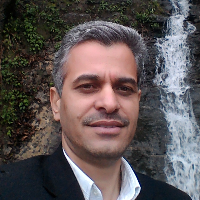The roots of the refusal of modernity and the symbolic sterility of Iranians in the Qajar era
Author(s):
Article Type:
Research/Original Article (بدون رتبه معتبر)
Abstract:
Iran''s encounter with Western civilization is the most important cultural phenomenon in Iran''s history after Iran''s encounter with Islam. On the one hand, it was the West that was attacking and on the other hand, an old Illyrian empire with kings who believed it was good to maintain the old balance, and for this reason, there is a need to analyze the face of Iranians in the Qajar era with modernity and Its complications should be paid. This research has been organized using the library and documentary tools and phenomenological method, and it seeks to investigate the question of what effect has the gradual invasion of modernity had on Iranians'' perception of facing this new phenomenon? And it is based on the assumption that the complications of the entry of modernity have led to the functional-identity refusal of Iranians and the symbolic sterility of Iranians in adopting a suitable reaction. According to the findings of the research, the Iranian subject, affected by the entry of the western "other" and modernity, suffered infertility and started non-symbolic identification with it.
Keywords:
Language:
Persian
Published:
Journal of Irano-Islamic Research in Politics, Volume:1 Issue: 4, 2023
Pages:
72 to 96
https://magiran.com/p2578886
مقالات دیگری از این نویسنده (گان)
-
The narrative of "government" in the political thought of Ayatollah Seyyed Ali Khamenei
Ahmad Valavinasab, Hossein Athari *, Mahdi Najafzadeh
Political Science, -
Analyzing the Role of Ayatollah Khamenei as the Nodal Point of the Islamic Republic System
, Aliasghar Davoudi *, Saeed Gazerani
Journal of Iranian Political Research, -
Fantasy, trauma, capiton; Application of Psychoanalysis in Political Science Based on Basic Concepts
*, Seyyeh Hosseyn Athari
Journal of Irano-Islamic Research in Politics, -
Searching for a Meaningless World: Arendt's Intersubjective Narrative of the Subject
Peyman Zanganeh *, , Reza Nasiri Hamed, Roohoullah Ruhollah
Qarbshenasi-ye Bonyadi,



